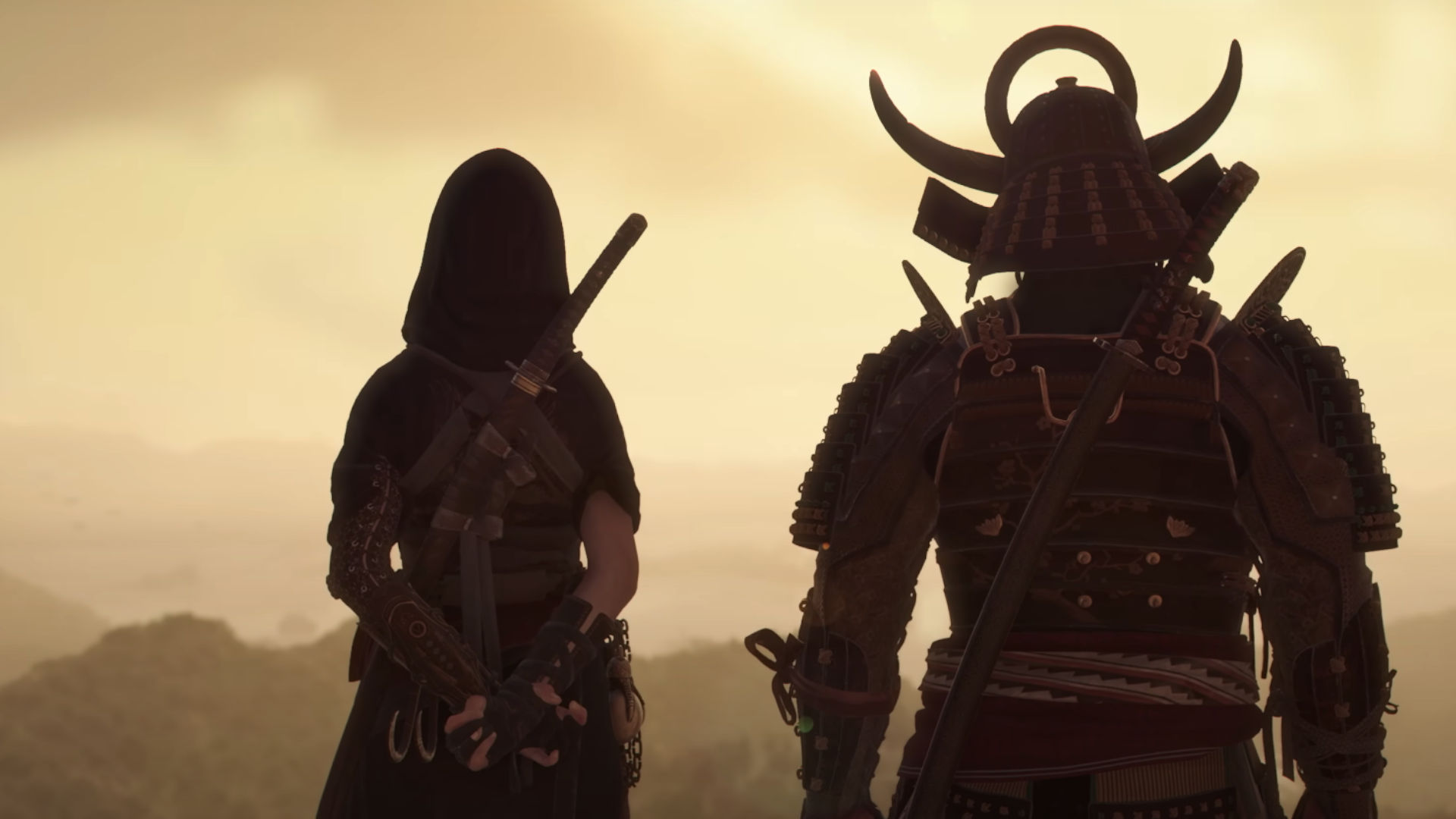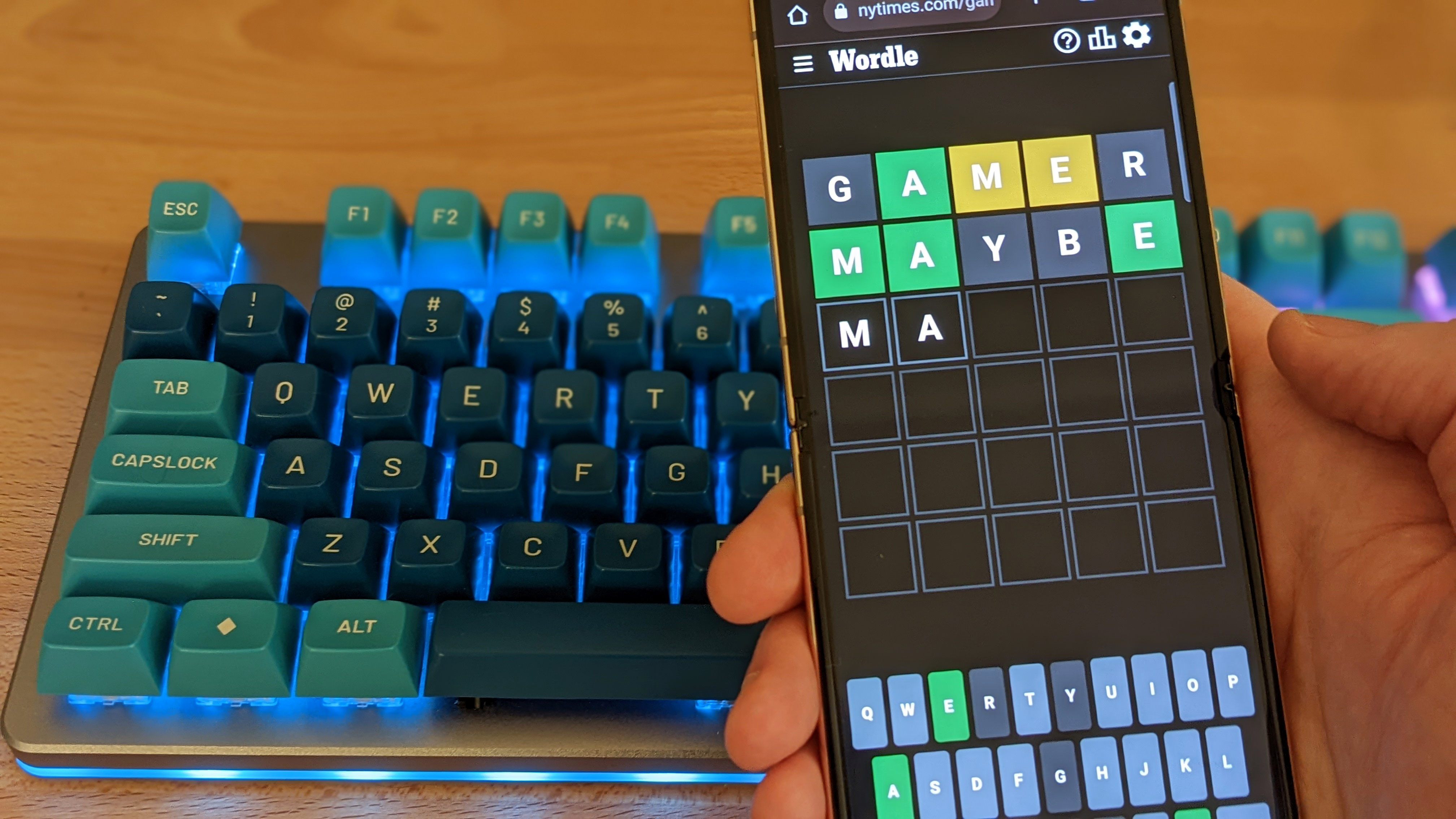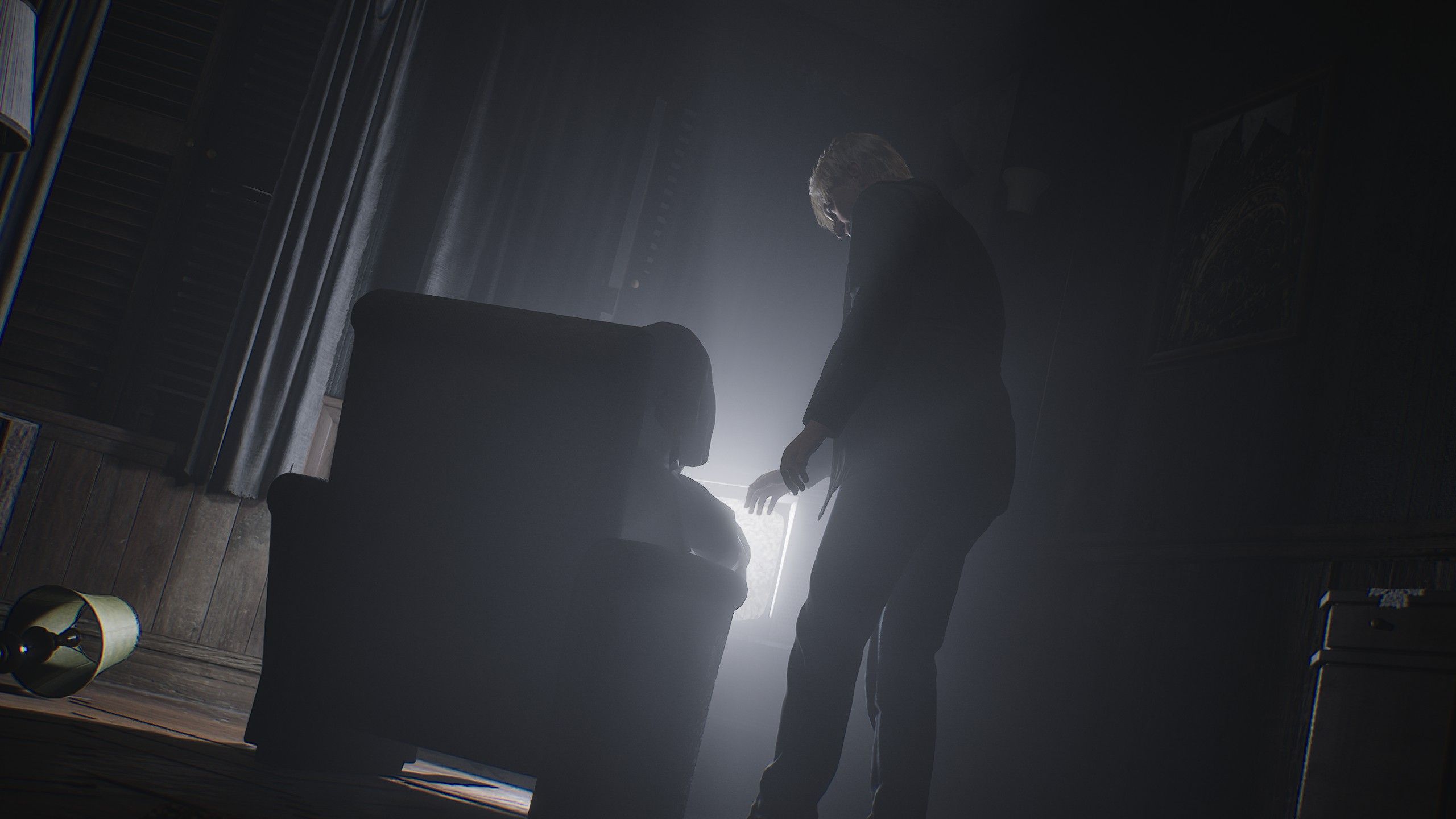
"The current climate is tough on our creative teams. They face lies, half truths and personal attacks online."
If you’ve been following the general discussions around Assassin’s Creed Shadows, you’ll have probably noticed—if you’ve had the stomach for it—a great deal of fury about the game’s lead characters. From Elon Musk taking swings for some unfathomable reason, to over-placating apologies from the company itself, to the game’s subreddit having to instate new rules to get people to please shut up about it, it’s been a headache and a half.
Speaking at a BAFTA event (thanks, Eurogamer) in London, franchise head Marc-Alexis Coté has given Ubisoft’s biggest outright condemnation of this behaviour so far. First, though, some context:
The dual protagonists shown off for Assassin’s Creed’s upcoming instalment are a shinobi, Naoe, and a samurai, Yasuke. Yasuke’s based on a 16th-century figure, an African who went on to be a retainer to Oda Nobunaga—this is also far, far from the first time he’s shown up in media, both Japanese and otherwise. My personal favourite is the vampire swordsman Nagoriyuki from Guilty Gear: Strive—though that’s mostly because his theme slaps.
Yasuke is, in other words, a great pull for a series like Assassin’s Creed, which has a charming tendency to “what if” historical figures into larger-than-life versions of themselves. For example, one game has you climbing inside Leonardo Da Vinci’s tank and blasting people to death, and while it’s based off one of his designs, he also never built the thing. Not to mention, there’s a scene where beloved italian stabber Ezio Auditore finds a recording left by an alien.
Despite the fact that Yasuke being represented as a samurai is both a common occurrence in Japanese media and a complete non-event to anyone familiar with the series (and not just engaging in outrage tourism) Ubisoft’s felt the need to be oddly meek about the whole thing, with the company’s CEO holding his hands up recently to reassure the public that Assassins Creed doesn’t have a political agenda.
Which is why it’s nice to see Coté finally push back against it with, for lack of a better phrase, his whole heart: “In Assassin’s Creed Shadows, we highlight figures, both fictional like Naoe, a Japanese woman warrior, and historical, like Yasuke, the African born samurai. While the inclusion of a Black samurai in feudal Japan has sparked questions and even controversy, Naoe, as a fictional character, has also faced scrutiny for her gender.
“But just as Yasuke’s presence in Japanese history is fact, so too are the stories of women who defied societal expectations and took up arms in times of conflict. So while both Naoe and Yasuke’s stories are works of historical fiction, they reflect the collision of different worlds, cultures and roles, and their inclusion is precisely the kind of narrative that Assassin’s Creed seeks to tell, one that reflects the complexity and interconnectedness of our shared history.”
Coté also very much highlights the point I make above—that this is nothing new for the series: “This isn’t new ground for the franchise … We’ve consistently introduced protagonists from diverse racial, ethnic and gender identities. History is inherently diverse, and so is Assassin’s Creed and the stories we tell. So to be clear, our commitment to inclusivity is grounded in historical authenticity and respect for diverse perspectives, not driven by modern agendas.”
I think Assassin’s Creed is absolutely a solid example of how this culture-war fretting is, for the most part, pretty new—as mentioned, Yasuke and Yasuke-inspired characters pop up all over the shop in popular media, and the series has always done this to figures like him. Which seems to be what Coté is getting at by referring to “modern agendas”. He adds:
“Today, we all however face the added challenge of distinguishing between genuine feedback and attacks driven by intolerance. The current climate is tough on our creative teams. They face lies, half truths and personal attacks online. When the work they pour their hearts into is twisted into a symbol of division, it’s not just disheartening, it can be devastating. What keeps me going is the resilience born out of conviction that I see in our teams every day. I am especially proud of the Shadows team for staying true to their creative vision and the core tenets of Assassin’s Creed.
“By choosing Naoe and Yasuke as protagonists, we are expanding the narrative landscape, offering new points of view that challenge established norms found in many works of fiction, while staying true to the history that shaped them.”
It really is like night and day when compared to the company’s previous stances—either there’s some conflicting messaging, or Ubisoft’s collectively blinked the fuzz out of its eyes and recognised that you might as well dig your heels in, because the people hauling these pitchforks aren’t likely to rest until their targets are thoroughly skewered.
There’s a little corporate speak going on here, don’t get me wrong. Assassin’s Creed gets described as “more than a game” and “a platform for meaningful exploration and reflection wrapped in the excitement of unforgettable gameplay”—which is executive babble, let’s be honest. But the speech goes into some deeply impassioned territory that I’m surprised made it to the stage:
“The stories we tell, the characters we create and the game worlds we build are instrumentalized by those who seek to silence creativity, to stoke fear and incite hatred. I believe we are facing what Fareed Zakaria calls an ‘Age of Revolution’, a time when the real conflict is not between the left and the right, but between societies that close themselves off and those that open themselves up to the world. Throughout history, it’s the open societies that have always eventually prevailed. While there may be setbacks over years or even decades, it is openness that has continually pushed humanity forward.
“As the authors of ‘How Democracies Die’ so powerfully stated, democracies crumble when good people decide to stay silent. The same is true, I think, of our creative freedom when we allow fear to stifle our voices. When we self-censor in the face of threats, we hand over our power, piece by piece, until freedom and creativity both wither away. We cannot let that happen. It’s time for us as creators to stand firm on our commitment to our values, by telling stories that inspire, that challenge and that help people connect. Our silence cannot become complicit.”
He wraps up this speech by stating: “I’m an optimist and a dreamer. I believe that the answer to hate is to continue creating experiences that celebrate the richness of our world and capture the magic of our collective imagination, because in the end, creativity is stronger than fear, and together, we are creating the future of entertainment.”
As a critic, the idea that Ubisoft—mostly known for making some quite good open world action games/RPGs—is creating the future of anything is up for debate. But the rest of Coté’s words here feel disarmingly earnest and, speaking plainly? It’s about time they were said. Whatever my opinions are as someone who plays videogames, as someone who makes stuff, Ubisoft’s franchise lead actually taking a stance instead of placating reactionaries with hand-wringing is enough to make me sigh with relief.





